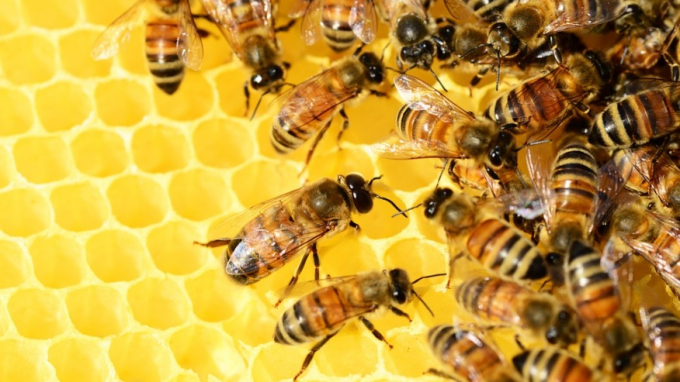May 20, 2025 | 12:36 GMT +7
May 20, 2025 | 12:36 GMT +7
Hotline: 0913.378.918
May 20, 2025 | 12:36 GMT +7
Hotline: 0913.378.918

The reclassified products includes neonicotinoid (neonic) insecticides imidacloprid, thiamethoxam, and acetamiprid. The DEC said these products have the potential to harm bees and other beneficial insects.
The “restricted use” label limits these pesticides for use by trained applicators in specific situations.
The reclassified products includes neonicotinoid (neonic) insecticides imidacloprid, thiamethoxam, and acetamiprid. The DEC said these products have the potential to harm bees and other beneficial insects.
“Protecting pollinators is a top priority, and today’s action to restrict the use of these neonicotinoid pesticides is another important step in our ongoing efforts to safeguard these species that are crucial to New York’s environment, agricultural economy, and biodiversity,” said DEC Commissioner Basil Seggos. “Reclassifying these pesticides will ensure they are only used in targeted instances by qualified professional applicators, and only available for sale to certified applicators which will further protect public health and the environment.”
The reclassification will take effect on January 1, 2023. This allows time for registrants, distributors and retailers to prepare for the change. Products labeled for “limited directed application” to tree trunks and the ground at the base of trees, shrubs, and plants are not included in the reclassification.
The DEC said pesticides often stress pollinators and neonicotinoids have been identified as a group of pesticides that are highly toxic to them. While commercial application of all pesticides is reported to DEC as part of the state’s regulatory oversight, residential applications and sales of general use products to consumers are not. The reclassification allows the DEC to collect sales and use data to estimate and monitor the quantities and locations where these products are used.
“Getting ‘over-the-counter’ neonic products off of store shelves marks an important first step in reining in widespread neonic contamination, which we see in New York State’s water and in record yearly losses of bees,” said Dan Raichel, Acting Director of Natural Resources Defense Council’s Pollinator Initiative. “We look forward to continued work with the DEC on even more protections for people and pollinators from these neurotoxic pesticides.”
New York released its Pollinator Protection Plan in 2020 with initiatives on how the state is protecting its pollinators. According to the U.S. Department of Agriculture, pollinators provide about $344 million worth of pollination services to New York and add $29 billion to crop production nationally each year. The state’s ability to produce crops such as apples, grapes, cherries, onions, pumpkins, and cauliflower relies on pollinators.
(News10)

(VAN) Attempts to bring down the price of the Japanese staple have had little effect amid a cost-of-living crisis.

(VAN) Fourth most important food crop in peril as Latin America and Caribbean suffer from slow-onset climate disaster.

(VAN) Shifting market dynamics and the noise around new legislation has propelled Trouw Nutrition’s research around early life nutrition in poultry. Today, it continues to be a key area of research.

(VAN) India is concerned about its food security and the livelihoods of its farmers if more US food imports are allowed.

(VAN) FAO's Director-General emphasises the need to work together to transform agrifood systems.

(VAN) Europe is facing its worst outbreak of foot-and-mouth since the start of the century.

(VAN) The central authorities, in early April, released a 10-year plan for rural vitalization.